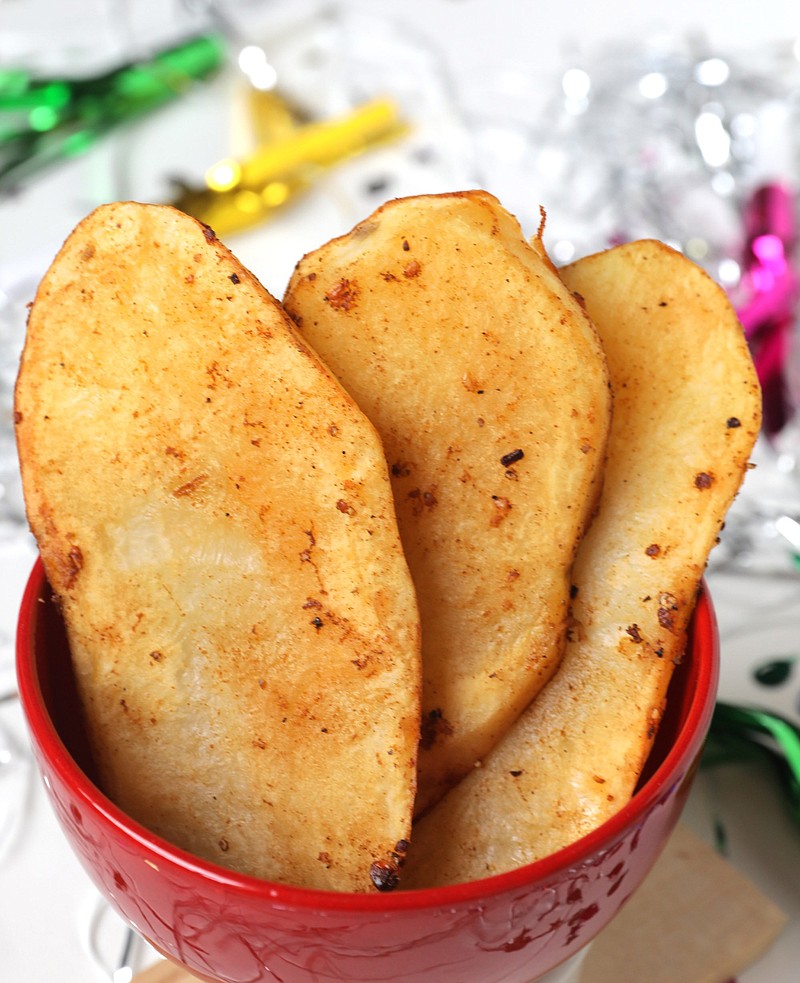Sometimes a particular food gets a bad reputation. It can be labeled "fatty" or "junk," based on widely held misconceptions. Due to a variety of fad diets in the past, potatoes have developed a reputation for making you fat. In fact, a number of carbohydrates were shunned, which we now know is not in good practice with a healthy diet.
Carbohy-drates are the primary source of energy for your body. Think of a car needing gasoline; that's what carbohydrates do for our body. Carbohydrates provide the fuel for your muscles and organs, such as your brain. If you don't eat enough carbohydrates, it can cause fatigue, cramping and poor mental function.
Potatoes are a great source of energy, as are foods like whole-wheat breads, pastas and brown rice. Carbohydrates should be consumed in moderation. The general rule of thumb is about 50% to 55% of your total calories should come from carbohydrates. If you are on a low-carb diet, you should consult an expert dietician, as this can be harmful if taken to an extreme.
Another positive attribute of potatoes is that they are a resistant starch. This means they are not broken down in the small intestines, and tend to be digested more like a fiber in the colon. They help keep you full longer, prevent constipation, and for some Type II diabetics, help control your blood sugar levels.
As with most foods, potatoes can be turned unhealthy rather quickly. All you have to do is add some sour cream, lots of butter, salt, and fry them. Baking, grilling, broiling, sautéing or steaming are all great ways to cook your potatoes. Cook with olive oil instead of butter to lower the fat content.
To keep your potatoes healthy, be sure to leave the skin on, as it is the source of dietary fiber. Most of the nutrients in a potato are found in the skin. If you do peel the potato, use a vegetable peeler instead of a knife to remove only a thin layer of skin and retain the nutrients that lie underneath. Clean and cut your potatoes right before cooking to prevent discoloration.
Eating a potato is similar to eating a salad. It is the toppings or dressings that are the culprits. Use fresh or dry herbs and spices rather than salt, and use cheese sparingly. One serving size is a medium-size potato.
Potatoes are a source of vitamin C, an antioxidant that may reduce your risk of heart disease and certain cancers. Vitamin C helps protect skin from bruising, helps heal cuts and keeps gums healthy. Eating foods with vitamin C helps the body absorb iron. Potatoes are also a source of potassium, magnesium and fiber. Potassium helps maintain healthy blood pressure, magnesium helps build and maintain strong bones and fiber helps control cholesterol and keeps you regular.
Choose clean, firm, smooth potatoes that are not green in color and don't have sprouts. Reject potatoes with large cuts, cracks, bruises, decay, sprouting eyes or shriveling. Store in a cool, dark place with good ventilation for up to 1 month. Throw away potatoes that are shriveled or sprouted. Avoid storing potatoes in the refrigerator. The cool temperature favors the accumulation of sugar, giving the potato a sweet flavor and dark color when cooked. Call our office at 870-779-3609 and request your free copy of Arkansas' Fresh Potatoes, which is full of recipes and information. Also check the local farmers markets for fresh, locally-grown potatoes.
Rosemary Roasted
Red Potatoes
2 pounds red potatoes, cut into wedges
1 tablespoon olive oil
2 cloves garlic, chopped
2 sprigs of rosemary, chopped
Preheat oven to 400 degrees F. In a large roasting pan, combine the potatoes, oil, rosemary and garlic. Toss to evenly coat. Bake for 45 minutes, turning halfway through the cooking time or until golden and tender.
Carla Due is county extension agent-staff chair with the Miller County Extension Service, part of the University of Arkansas Division of Agriculture.

